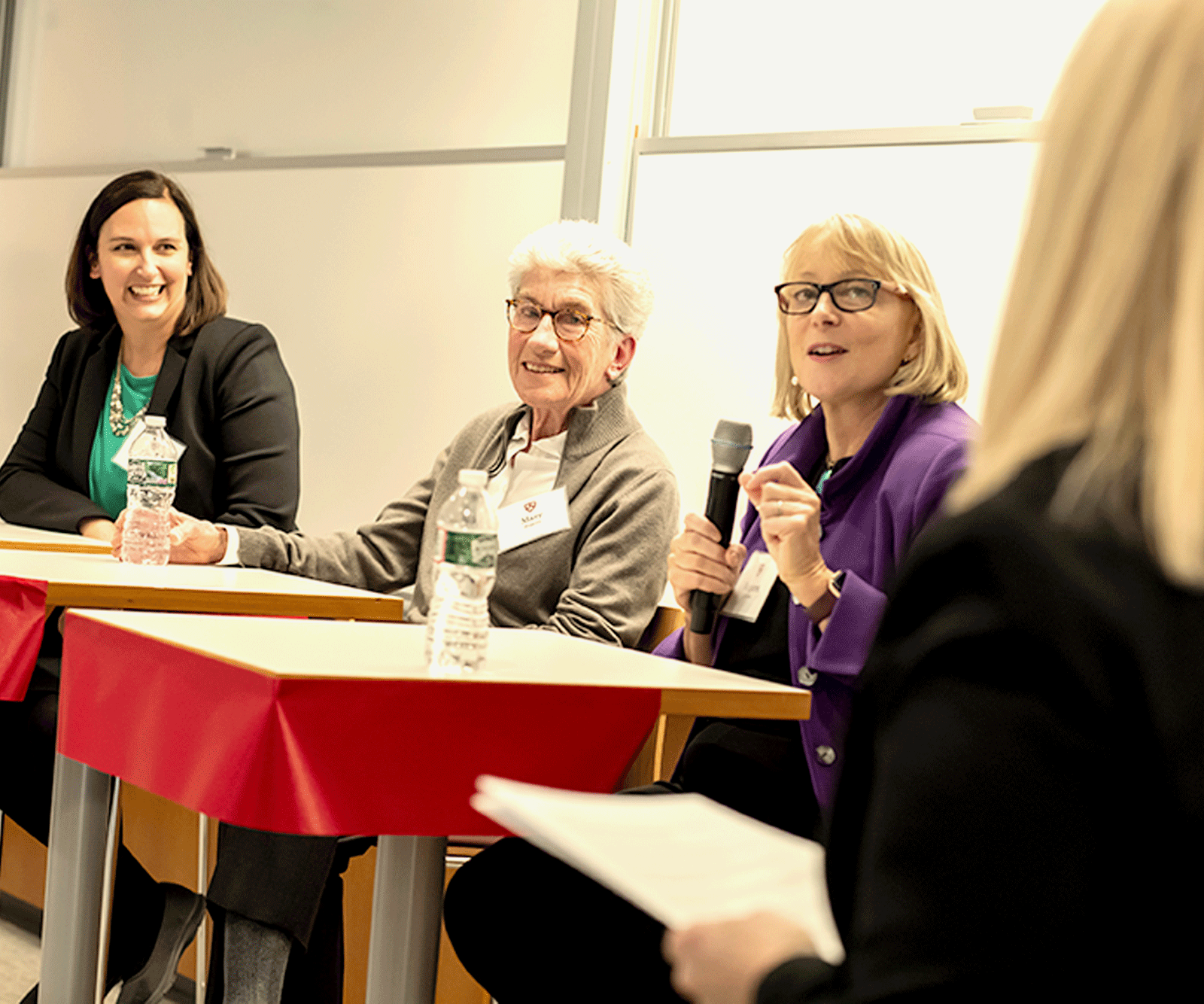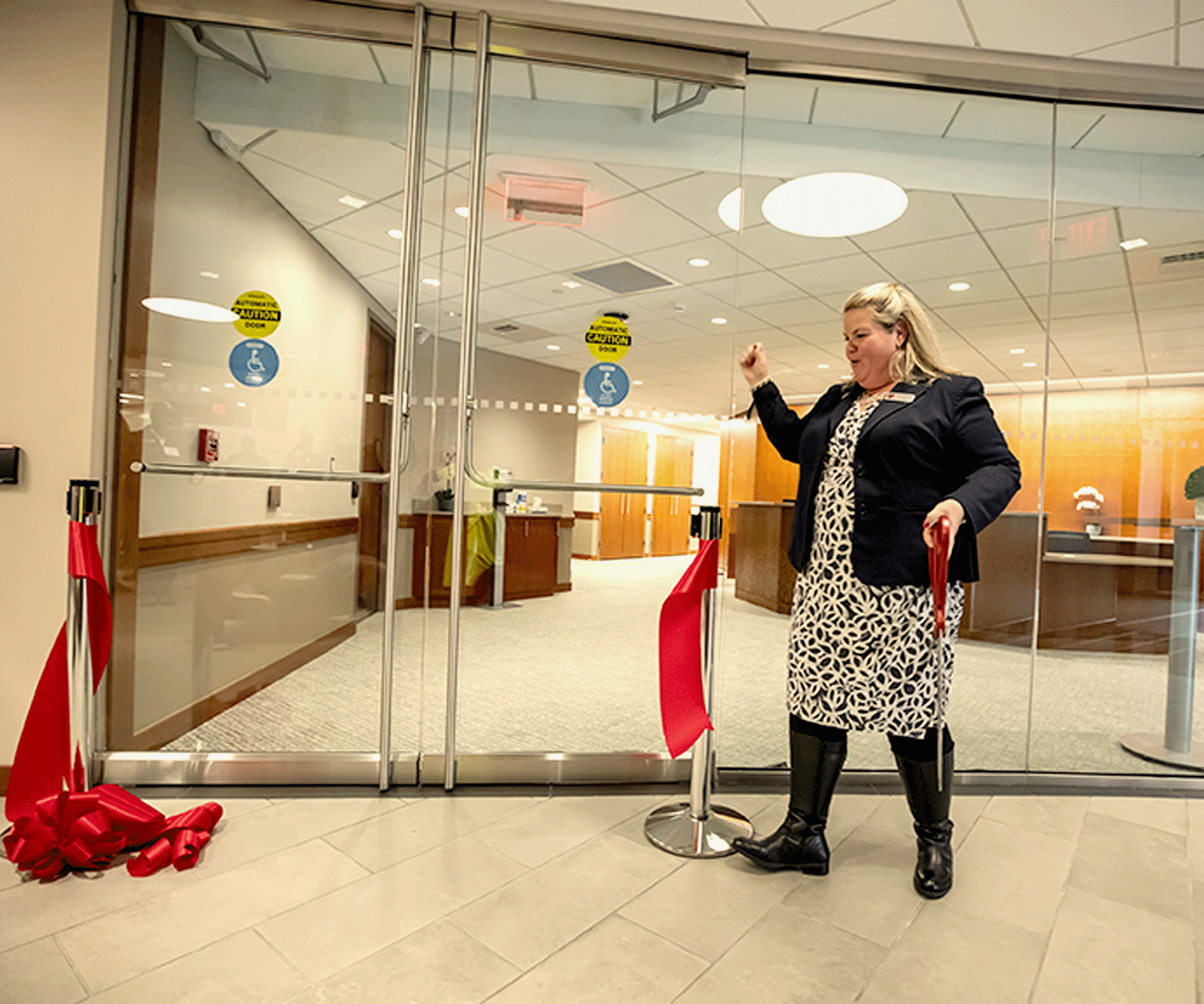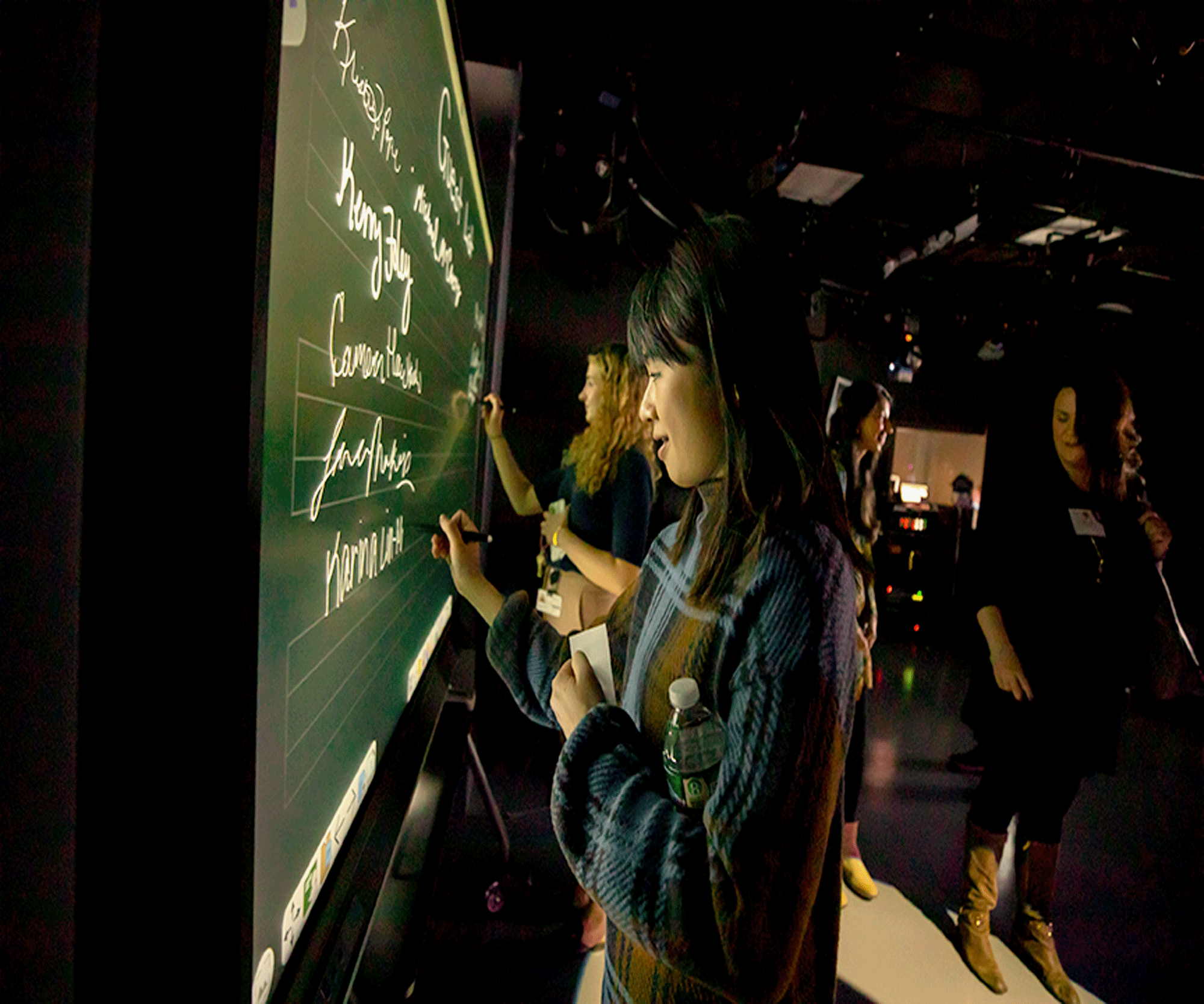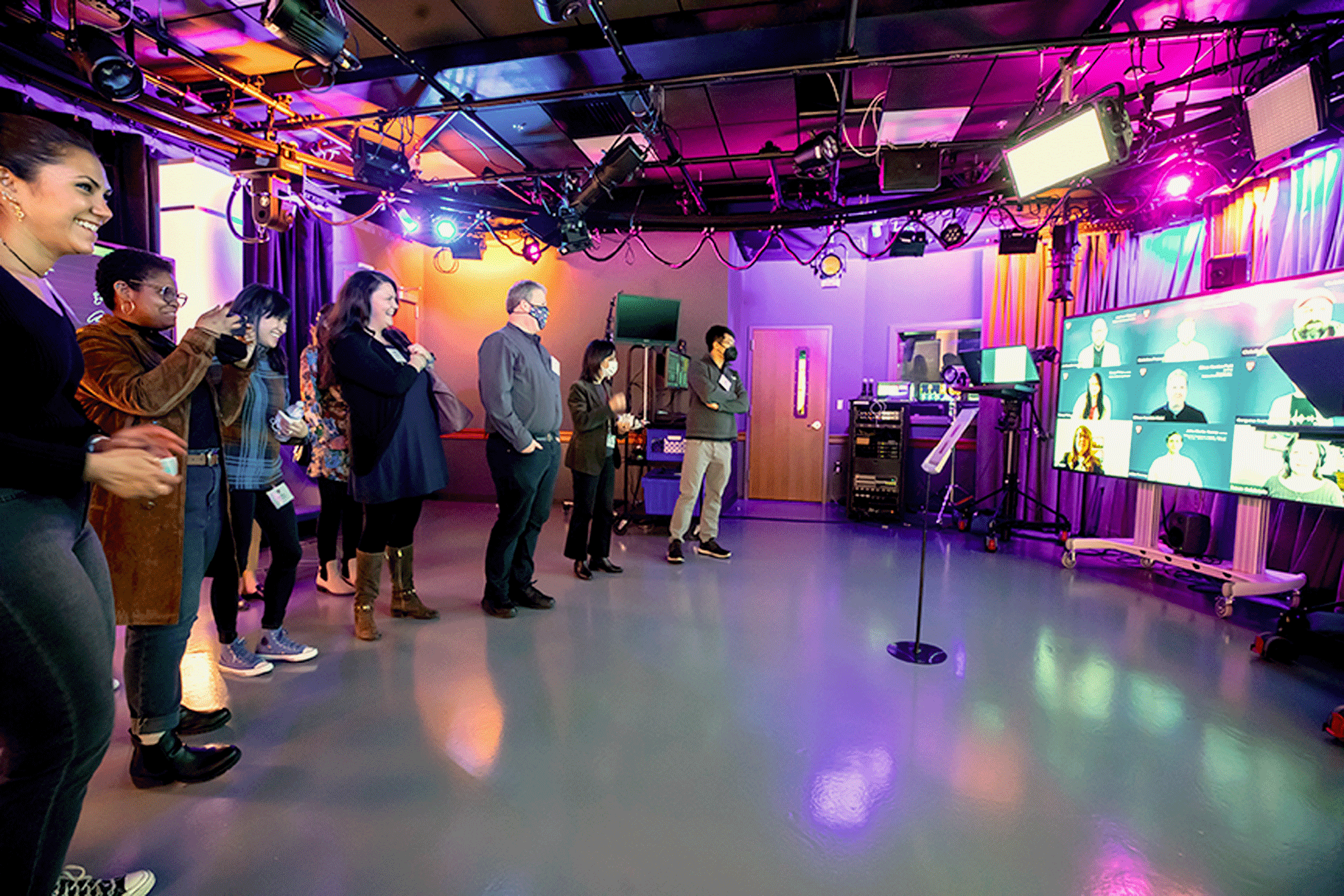On this page
More than 70 people came to celebrate the 10th anniversary of the Division of Continuing Education’s (DCE) Professional & Executive Development (PED) with the opening of the program’s new classroom space, executive breakout rooms, and state-of-the-art multimedia studio in Harvard Square. Located at One Brattle Square, the ribbon-cutting represented the culmination of years of work, design, construction, and planning, much of which came together remotely during the height of the pandemic.
“This new space represents so much of what we do at DCE,” said Nancy Coleman, dean of the Division of Continuing Education and University Extension. “I am hopeful and excited about the lives we will begin to touch because of this new space.”
The idea to offer Professional & Executive Development at DCE first sprouted in 2010 from the minds of former Associate Dean for Academic Administration Mary Higgins, former Executive Director for Strategic Growth Initiatives Carol Stuckey, and former Assistant Dean for Management Programs Margaret Andrews. The women seized the opportunity to offer these programs when they recognized the need to serve mid-level professionals with a collaborative learning and networking opportunity that Harvard did not offer at the time. They said that their “lemonade stand” of an idea quickly reaped a profit after the first programs started to operate in 2011.


The women behind PED, Carol Stuckey (from left), Mary Higgins, and Margaret Andrews, were joined by PED Director Linda Cross (back to the camera). “This new space represents so much of what we do at DCE,” said Dean Nancy Coleman, who cut the ribbon.
PED has grown in the last 10 years. The program has generated considerable revenue for DCE while also keeping in line with demand from professionals and employers, and increasing its reach to learners internationally. The pandemic did affect attendance slightly, but it also allowed PED to move online, Director Linda Cross said. In 2019, the program served 2,900 participants from 100 countries and all 50 states.
While the first programs were held around the Cambridge campus, The Harvard Club of Boston, and other locations, DCE designed and built at its current location in 2014. With programs growing and the positive reception of the original space, a second phase of expansion adding a larger, flexible classroom space started in 2019. The final phase culminated with an expansion into the entire second floor of One Brattle Square (formerly an Eastern Mountain Sports store) and a new media studio. This year Cross said PED expects to run more than 150 programs with approximately 30 percent online. The program now has 60 instructors and expects to grow.
Pierre Julien, computer labs manager for DCE, explained the logistical challenges of trying to design and build the space during the pandemic, when there was limited access to campus. Without being able to be in the same place as colleagues, drawing out plans and discussing technological needs proved to be difficult.

“Every meeting was essentially virtual,” Julien said. Some team members would come to the space on designated days, one at a time, while others watched the progress via video meetings.
The new space is already meeting the demand of the growing PED program and helping other departments around DCE. It will be used extensively for Extension School courses in the evenings, and Harvard Summer School classes as well.
The new multimedia studio at One Brattle is, “Designed to run high-profile events for courses that don’t have a regular in-person option,” according to the studio’s website. “This new space will broaden DCE’s capacity to host online interactive sessions from conception to delivery, and is fully equipped to produce webinars, Zoom meetings, debates, lectures, interview panels, and demonstrations.” Many of the attendees at the opening marveled at the high-definition television screens, multitude of cameras, and interactive whiteboards. The studio is operated by DCE’s Teaching and Learning team and will feature heavily in the production of the HELIX Classroom courses.
Coleman reported that on a recent tour of the space a Harvard Corporation board member remarked, “If we can do this, we can do anything.”
*Story reprinted with permission from the Harvard Gazette.

